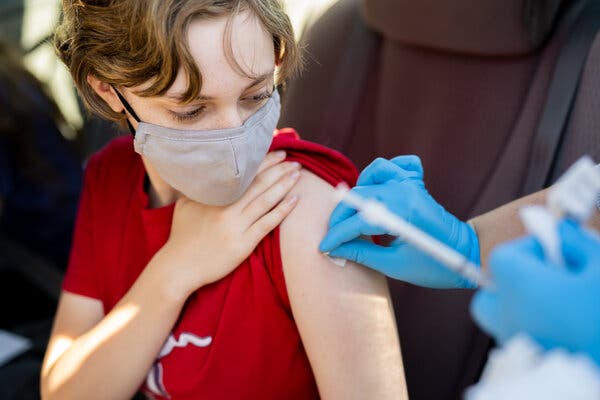Vidya Sethuraman
India Post News Service
Vaccinating children and young adults is key to controlling the COVID-19 pandemic, and the CDC just announced its authorization of the Pfizer-BioNTech’s COVID vaccine for kids age 5 to 11. Vaccinating 28 million 5 to 11 year olds could help the U.S. turn the corner in reaching 75% immunization, according to health experts. The pediatric version of the Pfizer COVID-19 vaccine, which is authorized for kids age 5-11 will be a lower dose than the amount administered to individuals 12 and up, but will still be a 2 dose shot administered 21 days apart.
Monica Gandhi, MD, MPH, Professor of Medicine, UC San Francisco’s School of Medicine said at the EMS Briefing on Nov 12 that some children infected were mostly from areas with low vaccination rates. Therefore, it is necessary for children to be vaccinated, and vaccination for this group of 5 to 11 years old is very important to curb the spread of the epidemic, and will effectively reduce the rate of transmission of children to others, especially many children who live with grandparents. If more people in the United States are vaccinated, herd immunity can be truly achieved.
Even if the dose is small, the response will be great, that is imperative. On the other hand, the problem of myocarditis is also considered. The final decision is 10 mg, which is safe and effective. However, she believes that a long interval between the two doses is more effective for children, because a long time allows the child’s immune system to adapt. An interval of six to eight weeks is more appropriate, and the immune system will respond better than the three-week interval.
Jennifer Miller, MD, Pediatrician, East Bay Pediatrics said that many parents are eager to vaccinate this group of children, and some children are eager to get vaccinated because they can reunite with friends and go to school throughout the day without worrying about illness or isolation. The whole family can also travel during holidays. However, there is another group of parents who hold a wait-and-see attitude, most of which are ethnic minority groups. They are mainly afraid of long-term health effects and side effects after their children are vaccinated.







